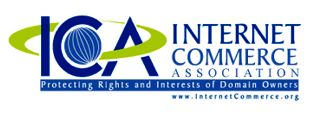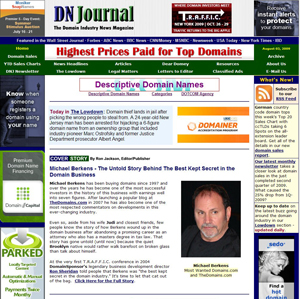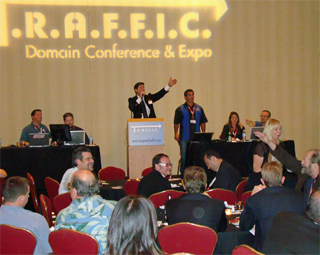|
I'm
not holding my breath on that one though. As WebAdvantage.net
commented last summer (and apparently nothing has changed
since then), " the collective wisdom of Wikipedia stems from only a small group of editors in a very top-down bureaucratic way, and a growing number of users and ex-Wiki editors have expressed discontent for the open content encyclopedia’s sometimes less than fair opinions and editorial
methods. Additionally, Wiki editors have faced several
very public credibility issues in the recent past, especially since the development of
Wikiscanner, a publicly searchable database that links Wikipedia edits to the IP addresses of the business entities that create them. Some of Wikiscanner’s past revelations have
left many users questioning the integrity of Wikipedia’s
information.
In
this case, all those Wikipedia reps needed to do is look
up the word "squatting" in the dictionary (not
too much ask before tarring an entire billion dollar
industry and the thousands of people who work in it I
would think). Squatting is the act of sitting on or
occupying something that the squatter did not pay for
and has no right to use (it originally applied to those
who squatted on someone else's property. The
"cyber" prefix just means doing it in the
virtual rather than real world).
|

When
it comes to domaining, accuracy
at Wikipedia is harder to find than
the pea in a shell game. |
Domain
owners pay registration fees that
give them the right to use the names they buy, so
by definition they are not squatting.
The term cybersquatter applies to only a small
minority of registrants who wrongfully try to
profit from the tiny fraction of the 183
million domains registered worldwide that
infringe on trademark rights held by others.
Certainly
there are cybersquatters within the
business of domaining just as there are, for
example, embezzlers within the accounting
business. Would Wikipedia redirect a search for
"accountants" to a page about
"embezzlers"? Of course not - but that
is exactly what they are doing with
domaining and that is unconscionable and is
so obviously unfair that I am actually embarassed
for them.
|
One
of the many people in our industry who is distressed and
offended by Wikipedia's blanket condemnation of this
business is Max Menius, a veteran domain
investor/developer from North Carolina who
registered his first domain in 1998. Menius has patiently
been communicating with Wikipedia in an effort to get them
to correct their mistake. He even went so far as to
invest hours of his time in writing a well documented page
for Wikipedia explaining what domaining is since the
moderators at the online encyclopedia are clearly clueless
in that regard.
Those
editors have sliced and diced his original document to
such a degree that it bares little resemblance to the
original, so I asked Menius for permission to print it in
its entirety here so that an accurate representation
of what domaining is will exist someplace online,
if not at Wikipedia.
Article
below courtesy of Max Menius
| 'Domaining'''
is the business of monetizing internet domain
names using a variety of approaches and
strategies. These monetization strategies include
full scale website development, development of
minisites, hosting parked pages which display
advertiser feeds (pay per click), affiliate
partnerships, domain name forwarding arrangements,
domain name sales & leasing, the selling of
direct sales leads via customer opt-in, providing
online hotel and flight booking, the inclusion of
paid directory listings and other commonly
accepted business approaches.
''Domaining'''
and '''domainer''' are general domain name
industry terms which possess no inherent negative
connotation. Domaining is commonly used to refer
to the varied business-oriented activities of
domain enthusiasts or those |

|
| involved
in the domain name industry. The larger domain
name industry and domain name community have often
been categorically misrepresented as "cybersquatters"
by uninformed or poorly researched writers. |
'''Domainer''' is used to
refer to individuals who engage in domaining, similar in
function to developers who engage in developing, sales
people who engage in selling, or writers who engage in
writing.
"Cybersquatting"
is a Federal offense as defined by the Anticybersquatting
Consumer Protection Act. This act prohibits
registering, trafficking in, or using a domain name with
bad faith intent to profit from the goodwill of a
trademark belonging to someone else. The greater domaining
industry and domainer community are against cybersquatting,
do not register trademark infringing domain names, and
have publicly voiced opposition to this practice via
international domain conferences, published articles,
participation in online discussion forums, and membership
in the Internet
Commerce Association (ICA) who represent
domain name investors, developers, and the direct search
industry.
Internet Commerce
Association (ICA)
ICA Mission
Statement
| The
Internet Commerce Association (ICA), founded in
2006, is a non-profit trade organization
representing domain name investors and developers
and the direct search industry. ICA is made up of
responsible businesses and individuals who have
joined together to improve public confidence in
internet commerce. Based
|

|
| in
Washington D.C., our mission is to promote
and share best practices among participants in the
domain name industry and to educate consumers,
policy makers, law makers and the media about the
value and benefits of direct navigation traffic
and the domain name industry. |
ICA Member Code of
Conduct
The Internet Commerce
Association’s (ICA) Member Code of Conduct expresses the
ICA’s recognition of the responsibilities of its members
to the intellectual property, domain name, and at large
Internet communities and will guide members in conducting
their domain name investment and development activities
with professionalism, respect and integrity.
All members of ICA are
committed to addressing the issues facing the evolving
domain name industry, which include:
Protection of
Intellectual Property Rights: A registrant shall follow
accepted trademark law and respect the brands and
trademarks of others. Members will not intentionally and
in bad faith register and use a domain name that is
identical or confusingly similar to a trademark or service
mark. Registrants shall respond promptly to legitimate
disputes relating to alleged infringement of intellectual
property rights.
"Domaining" and
"Domainer(s)" are common terms referenced
millions of times in video and written publications across
the internet (a current Yahoo search of
"Domaining" produces 6,960,000 indexed web
pages, and a YouTube search produces 39,200 results
for the term). Periodicals and domain news aggregators
devoted to domaining include: ModernDomainer.com, DomainersMagazine.com,
Domaining.com, DNHeadlines.com, and Namebee.com.
|

|
Numerous
online news and blog sites are dedicated to
covering domaining news & events including: DNJournal.com,
DomainNameWire.com, TheDomains.com, ElliotsBlog.com,
and RicksBlog.com. As of this writing, the
DNJournal Daily Lowdown contains
twenty-five separate references to domaining,
domainer, or domainers illustrating how common
these terms have become. Not one of the
twenty-five references is mentioned in relation to
the illegal act of cybersquatting.
As a credible
domain industry news source, DNJournal.com has
been referenced in The Wall Street Journal,
ABC News, BBC News, Forbes, Newsweek,
USA Today, New York Times, CNN/Money,
Investors Business Daily, MSNBC, Boston
Herald, and the Montreal Gazette. |
Domaining is well
represented by popular industry discussion forums at: DNForum.com
(78,336 members), Namepros.com (156,999 members), ccTLD's.com
(1473 members), Mobility.mobi (4013 members), and DomainState.com
(who provide a "Domainer Orientation Glossary"
for new domaining enthusiasts).
Major domain sales,
leasing, auction and drop-catch sites include: Sedo,
AfternicDLS, BuyDomains, LeaseThis, NameJet,
Rick Latona, Snapnames, 4Domains, Pool,
GoDaddy, and Moniker who also provide
domainer asset management services. This does not
represent a complete list.
Examples of domain
industry trade shows (past and present) include, but are
not limited to: TRAFFIC, Domain Roundtable, Domain
Convergence, Domainer Mardi Gras, and Domainer
Paris 2008.
Domainer portfolio
management software is available at DomainerScript.com
as well as a Domainer Accreditation Program for
establishing one's own registry status at LogicBoxes
Registry Solutions.
Many well known domainers
are not only domain investors, but have allocated
considerable resources to full scale web development
projects, and they operate some of the most popular sites
on the world wide web. Examples are brothers David and
Michael Castello (PalmSprings.com, Nashville.com,
DayCare.com), Skip Hoagland (Atlanta.com,
Honolulu.com, MyrtleBeach.com), Boulevards New Media
(Houston.com, Seattle.com, LosAngeles.com), Elliot
Silver (Burbank.com, TropicalBirds.com, Lowell.com), InternetRealEstate.com
(Software.com, Phone.com, Chocolate.com), Rob Grant (Adirondacks.com,
RobGrantRealEstate.com), Sahar Sarid (Bido.com,
FuneralHomes.com), Rick Latona (aeiou.com,
RickLatona.com), Ron Jackson (DNJournal.com), Andrew
Alleman (DomainNameWire.com), and Michael Berkens
(TheDomains.com).
| The
domain name industry is a multi-million dollar
enterprise and is growing steadily year after
year. Sedo is a single online marketplace whose
2008 reported sales were $77,413,370 alone.
Sedo's 2006 domain sales were $45,076,536,
and 2004 sales were $11,148,922 showing a
significant rise in domain name sales over time.
Sedo provides periodic news and articles on domain
name investing. "A
Time To Buy: A Domainer's Guide"
provides a brief overview of parking and selling
domain names for novices entering the field.
Further
clarification on domaining vs. cybersquatting is
contained in "Cybersquatting
is Not Domaining" (January 10,
2009). |

Live
domain auction in New York City |
This page is the first
authoritative draft on domaining submitted for inclusion
to Wikipedia.org. Its author aims to dispell the
mischaracterization of domain name investors as
cybersquatters, and to provide a useful starting point for
Wikipedia users who are interested in learning more about
domaining and the domain name industry. The author owns a
portfolio of 850 domain names of which 17 are fully
developed websites, approximately 10 are under
construction, and the remainder are utilized for targeted
search and monetized through PPC advertising. The author
does not engage in cybersquatting, and has never received
a UDRP or been accused of trademark infringement. The
author has been actively domaining since year 2000, and
registered his first domain name in 1998 (which was his
first and last name in .com). The author is a member of
the Internet Commerce Association. The author works
full-time in a field totally unrelated to domain names and
internet technology.
|

